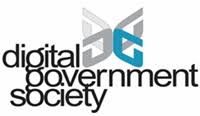Automation of the Planning and Management Instruments of the Unified Health System (SUS)
DOI:
https://doi.org/10.59490/dgo.2025.1046Keywords:
Digital Health, Public Sector, Digital Transformation, InnovationAbstract
This paper aimed to develop a solution using digital technological resources to overcome operational obstacles and improve efficiency in the process of developing and monitoring the Planning and Management Instruments of the Unified Health System (IGSUS). The IGSUS instruments include: the Municipal Health Plan (PMS), the Annual Health Programming (PAS), the Detailed Report of the Previous Quarter (RDQA), and the Annual Management Report (RAG). These instruments result from the collaboration of multiple stakeholders and are essential for organizing actions that address the health needs of the population. Reports from the team itself, corroborated by an initial mapping of the process, indicated that there was significant repetition of operational tasks and rework in the creation of data collection files, sending emails to technical areas, reviewing the information entered by respondents, consolidating spreadsheet files, and preparing the consolidated text file. The mapping and automation of the processes for developing and monitoring the IGSUS followed methodologies for project management, process management, and agile methods, focusing on a collaborative, governed approach inclined toward innovation and improvement in the delivery of public services. This work led to the establishment of standardized data collection forms, Python scripts that automated these tasks, and a platform for sharing spreadsheets, reducing the hours spent on these tasks and enabling better support for the planning process with the technical areas of the Municipal Health Department of São Paulo.
Downloads
References
ABPMP International. (2020). Guide to the Business Process Management Body of Knowledge (BPM CBOK®) Version 4.0. ABPMP International. Retrieved from [link]
Asgarkhani, M. (2005). The effectiveness of e-service in local government: A case study. The Electronic Journal of e-Government, 3(4), 157-166. Available online at [link]
Conselho Nacional de Saúde. (2012). Resolução nº 459, de 10 de outubro de 2012. Aprova o modelo padronizado de relatório quadrimestral de prestação de contas para os estados e municípios. Retrieved from [link]
Giovanella, L. (1990). Planejamento estratégico em saúde: Uma discussão da abordagem de Mário Testa. Cadernos De Saúde Pública, 6(2), 129–153. https://doi.org/10.1590/s0102-311x1990000200003
Gkrimpizi, T., Peristeras, V., & Magnisalis, I. (2023). Classification of barriers to digital transformation in higher education institutions: Systematic literature review. Education Sciences, 13(7), 746. https://doi.org/10.3390/educsci13070746
Haug, N., Dan, S., & Mergel, I. (2023). Digitally-induced change in the public sector: A systematic review and research agenda. Public Management Review, 26(7), 1963–1987. https://doi.org/10.1080/14719037.2023.2234917
Jonathan, G. M. (2020). Digital transformation in the public sector: Identifying critical success factors. In M. Themistocleous & M. Papadaki (Eds.), Information Systems. EMCIS 2019. Lecture Notes in Business Information Processing (Vol. 381, pp. 189-199). Cham: Springer. https://doi.org/10.1007/978-3-030-44322-1_17
Latupeirissa, J., et al. (2024). Transforming public service delivery: A comprehensive review of digitization initiatives. Sustainability, 16(7), 2818.
Matus, C. (1991). O plano como aposta. Tradução de Frank Roy Cintra Ferreira. São Paulo em Perspectivas, 5(4), 28-42.
Ministério da Saúde da República Federativa do Brasil. (2017). Portaria de Consolidação nº 01/17. Retrieved from [link]
Prefeitura Municipal de São Paulo. (2020). Decreto nº 59.685. Retrieved from [link]
Presidência da República Federativa do Brasil. (1995). Decreto nº 1.651, de 28 de setembro de 1995. Regulamenta o Sistema Nacional de Auditoria no âmbito do Sistema Único de Saúde. Retrieved from [link]
Presidência da República Federativa do Brasil. (2011). Decreto nº 7.508, de 28 de junho de 2011. Regulamenta a Lei nº 8.080, de 19 de setembro de 1990, para dispor sobre a organização do Sistema Único de Saúde - SUS, o planejamento da saúde, a assistência à saúde e a articulação interfederativa. Retrieved from [link]
Presidência da República Federativa do Brasil. (2012). Lei Complementar nº 141, de 13 de janeiro de 2012. Regulamenta o § 3º do art. 198 da Constituição Federal para dispor sobre os valores mínimos a serem aplicados anualmente pela União, Estados, Distrito Federal e Municípios em ações e serviços públicos de saúde. Retrieved from [link]
Project Management Institute. (2017). A guide to the project management body of knowledge (PMBOK® guide) (6th ed.). Project Management Institute.
Shankarmani, R., Pawar, R., Mantha, S., & Babu, V. (2012). Agile methodology adoption: Benefits and constraints. International Journal of Computer Applications, 58(15), 31-37. https://doi.org/10.5120/9361-3698
Stoumpos, A. I., Kitsios, F., & Talias, M. A. (2023). Digital transformation in healthcare: Technology acceptance and its applications. International Journal of Environmental Research and Public Health, 20(4).
Terlizzi, A. (2021). The digitalization of the public sector: A systematic literature review. Rivista Italiana di Politiche Pubbliche, 1, 1-27. https://doi.org/10.1483/100372
Whitaker, S. (2014). The benefits of tailoring: Making a project management methodology fit. Project Management Institute. Retrieved from [link]
World Health Organization. (2021). Global strategy on digital health 2020-2025. Geneva: Licence: CC BY-NC-SA 3.0 IGO. Retrieved from [link]
Downloads
Published
How to Cite
Conference Proceedings Volume
Section
License
Copyright (c) 2025 Ilka Correa de Meo, André Luiz dos Santos Teixeira, Bianca Tomi Rocha Suda, Bruno Martinelli, Felipe Barbugian Borges da Cunha, Felipe Ribeiro Pereira, Fernanda Braz Tobias de Aguiar, Gianlucca Vergian Dalenogare, Karina Teixeira Silva, Luiz Gustavo Machado Cruz, Miriam Carvalho de Moraes Lavado, Sandra Fernandes Maciel dos Santos, Suellen Decario Di Benedetto, Estevão Nicolau Rabbi dos Santos

This work is licensed under a Creative Commons Attribution 4.0 International License.


